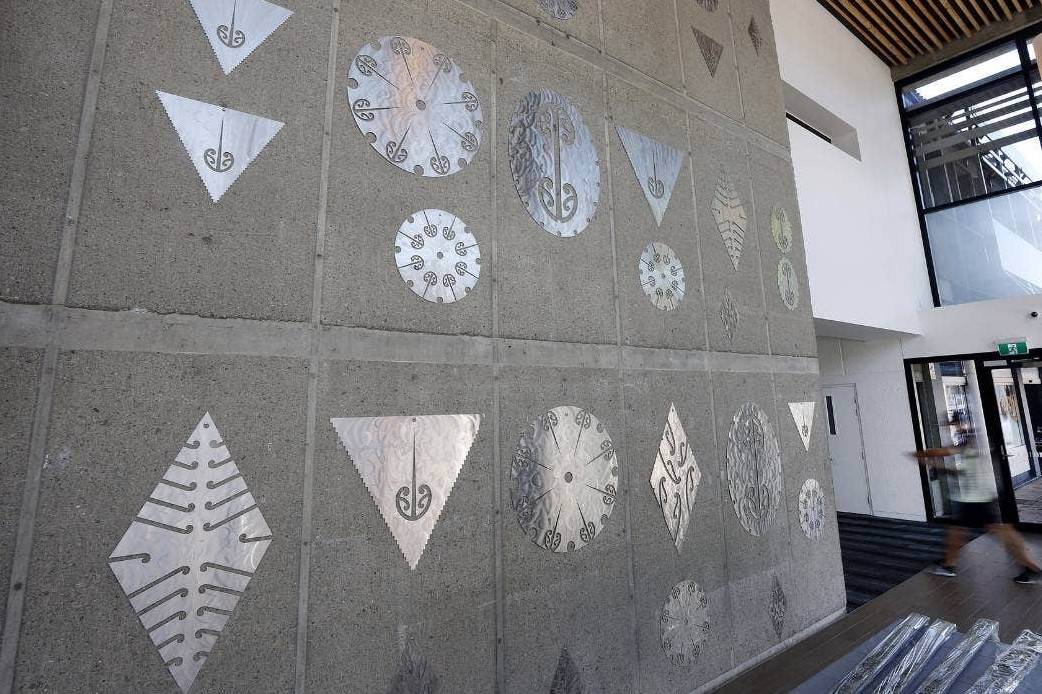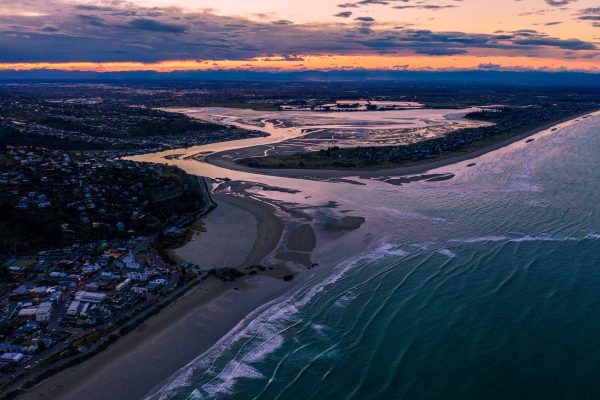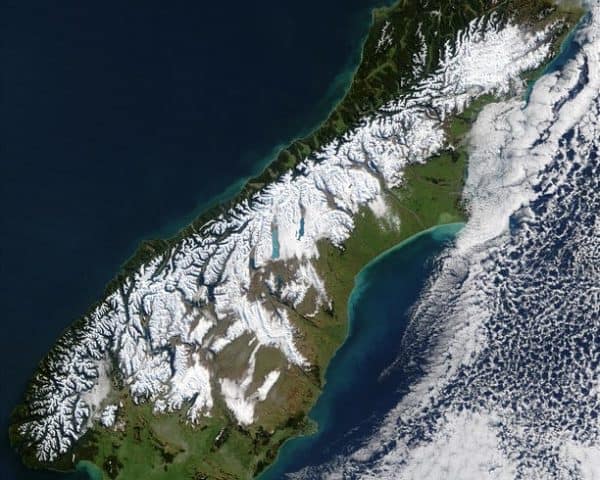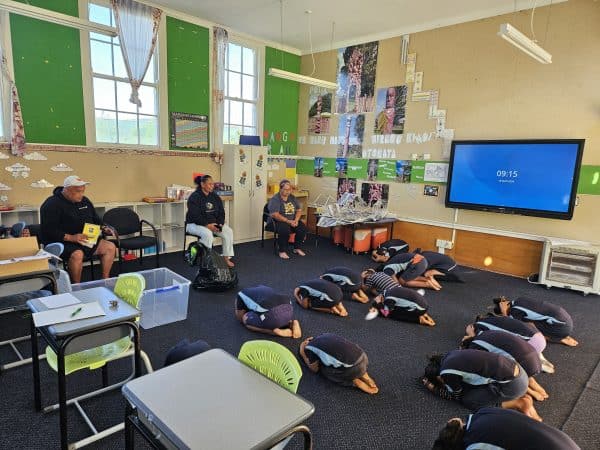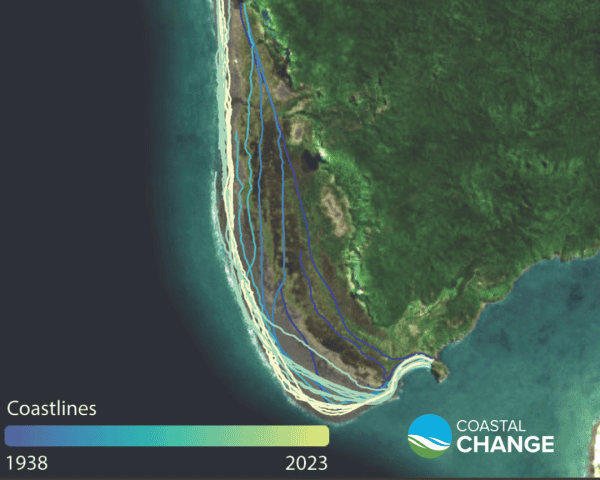In December 2022, a significant exhibition opened at Rangitāne House in Blenheim, the culmination of a longstanding collaboration with Rangitāne o Wairau that has brought kōrero tuku iho to life through art and science.
A pūrākau relating to Te Pokohiwi-o-Kupe (Wairau Bar) led to geological research by Dr Darren Ngaru King (Ngāti Raukawa), formerly of NIWA. The results of the research aligned with the pūrakau – it is likely that at least three tsunami events have occurred at the site over the last 2,000 years. The mātauranga and scientific research has inspired artworks crafted by Israel Tangaroa Birch (Ngā Puhi, Ngāi Tawake, Ngāti Kahungunu, Ngāti Rakaipaaka).
Corey Hebberd, Rangitāne o Wairau Kaiwhakahaere Matua said: “The opportunity to partner with NIWA in the delivery of this project and these artworks has enabled us to record our history in a new way – by bringing the kōrero to life through the scientific findings.” The exhibition is still open to the public and has been covered in the media and captured in a short video (embedded in linked media story). The project is part of our Whanake te Kura I Tawhiti Nui programme and received additional support from our Ākina Te Tū – Kaupapa Māori Resilience Fund.
Prof Christine Kenney (Te Āti Awa, Ngāti Toarangatira, Ngāi Tahu) of Massey University has been working with Tāne Mahuta NZ Ltd, a forestry business based in Whakatāne which is Māori-owned and underpinned by Māori kaupapa. Christine and Kaitohu (Director) Mrs Wini Geddes have developed a case study looking at cascading hazards in the eastern Bay of Plenty (flooding, the Whakaari eruption and Covid-19), and the response of Tāne Mahuta that showcases best practice in Māori resilience.
Tāne Mahuta has nurtured employees and their whānau during Covid, through working with Ngāti Awa hauora (health) providers. During lockdowns, business owners arranged for their forestry trainees to be deployed as essential workers on iwi-owned farms. The trainees were often the only members of their whānau bringing in income during the lockdowns. In addition, all employees complete their qualifications on the ‘learn while you earn’ model, as well as receiving emergency management, first aid and fire training.
The case study formed the basis for a successful application to MPI for recognition and support, and Tāne Mahuta won the MPI 2022 Good Employer Award in the Māori Agribusiness Category. A video has also been produced to share the company’s story and highlight the positive impact they’ve had on the lives of their young employees.
Prof Regan Potangaroa (Ngāti Kahungunu ki Wairarapa) of Massey University is working with select marae communities to develop affordable, whānau-based solutions to upgrading marae deemed earthquake-prone.
While some older marae may exceed the new threshold for structural safety (34% of New Building Standards), this cannot be determined without a structural engineer’s report. The high cost of obtaining these reports means many marae communities may not meet the deadline prescribed by the Building Act, so their pre-1976 buildings will be designated ‘earthquake-prone’ by default. It’s a difficult issue facing many whānau and hapū, given their deep ancestral, spiritual and emotional attachment to these buildings.
Regan is also investigating this attachment by 3D-scanning marae and letting community members explore the resulting simulations using virtual reality headsets. By tracking people’s movements and responses to the differences in what they see and feel, Regan can quantify people’s attachment to different spaces.
A webinar in September 2022 featured Regan and representatives from two case-study marae sharing their stories and perspectives (Demetrius Potangaroa, Te Ore Ore Marae marae committee chair and Boy Thomson, Chair of Trustees of Te Kainga marae, Wellington). The webinar led to media coverage and Regan reports he had a fantastic response and increased interest in his work.
Since Cyclone Gabrielle, Regan has pivoted to working with communities facing climate-related damage to their pā. Engagement and attachment activities developed in the earthquake workstream are proving useful in the climate change space. We will have more to report on both workstreams next year.
